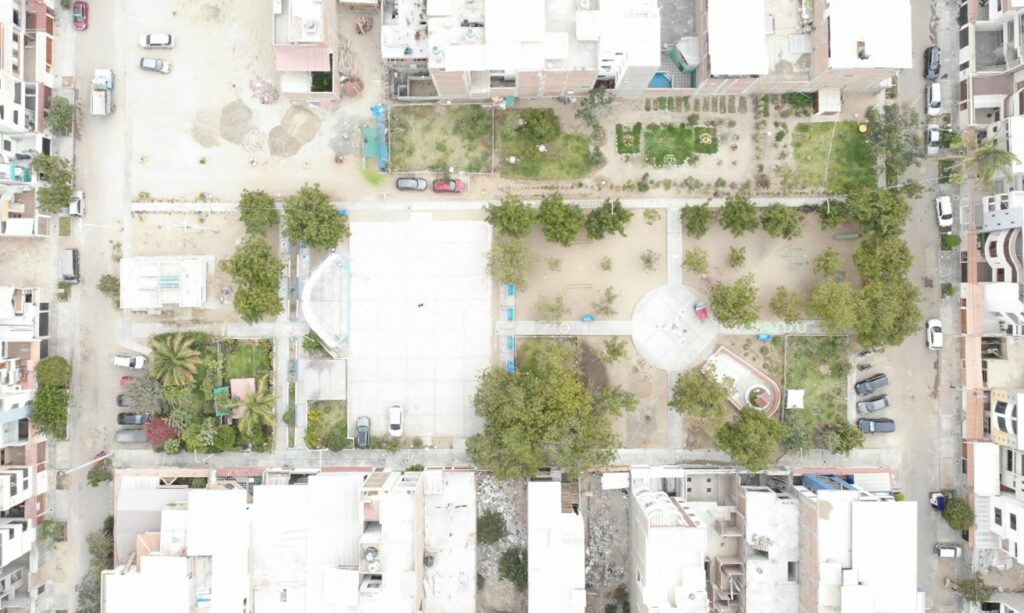Urban Gardening and Sustainability
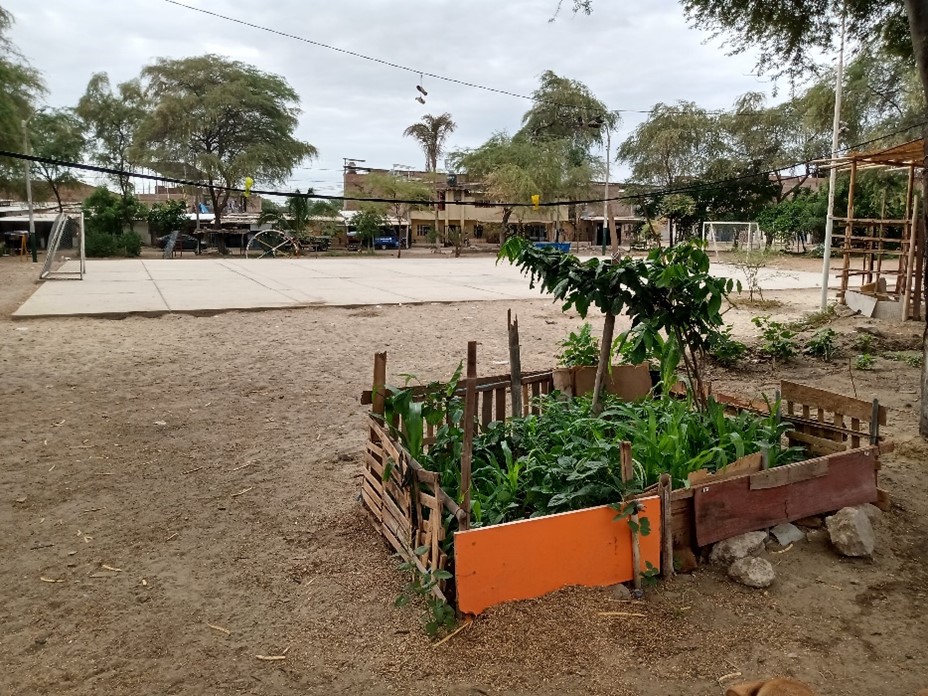
Urban Gardening has long been considered as a valid method for enhancing sustainable development as it contributes to healthy communities by providing nutritious food and engaging inhabitants in food production and beneficial recreational activities. The world-wide health crisis caused by the Corona virus has brought a range of social and economic issues to the forefront, one of them being the fragility of global supply chains. One way in which this is manifested is a renewed interest in urban gardening.
The implementation of urban gardens has multiple positive impacts on the urban system. It contributes to reducing pollution in the city as well as to lowering temperature. In addition to improving biodiversity and aiding the protection from natural disasters, urban gardens create a space for social interaction and generate ecological awareness. They also transform unused spaces into landscaped areas with recreational and ecological value, contributing to the implementation of green areas in the city and improving the overall quality of life.
Study on Informal Urban Gardens in Piura
The Piura City Lab Team has conducted a study on informal urban gardening initiatives based on empirical data collected in the city of Piura in Peru. Five initiatives for informal vegetable garden production organized by residents in different neighborhoods of the city were selected and studied. The criteria for selection also included different compositions of residents in relation to their socioeconomic status and the location in the central part of the city, where urban gardens are less common, as opposed to the outer suburbs.
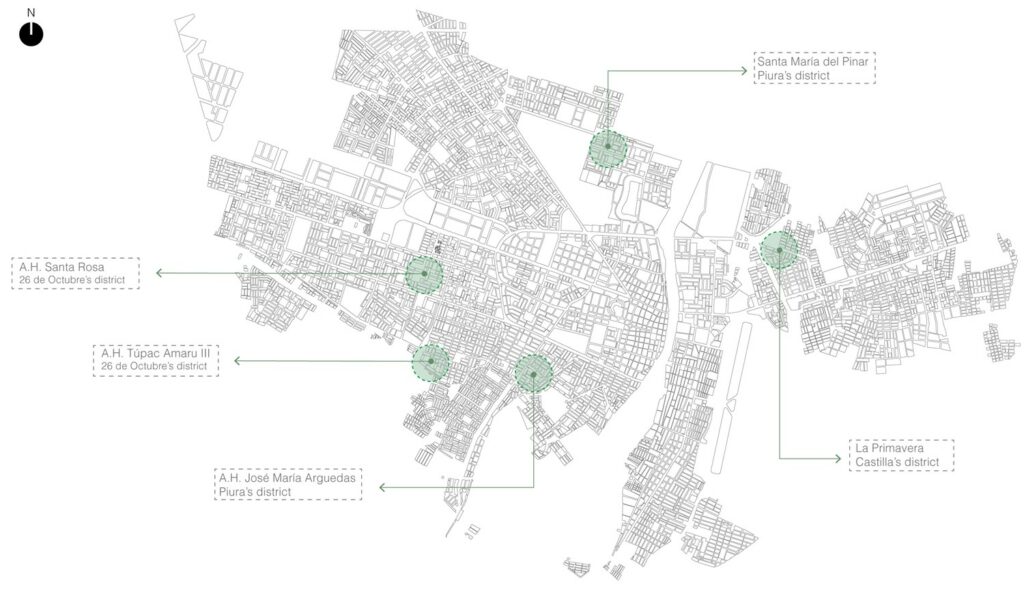
The five initiatives are characterized by their community-driven creation and their objective to improve the community at an urban, social, and environmental level. They are similar in terms of physical characteristics in that they use recycled elements such as bricks, fences, tubes, and bottles to delimit their garden space, thereby raising a sense of ownership and feeling of responsibility for maintenance. The research team conducted surveys in field visits to the study areas and through a questionnaire, which focused on the perception of the residents on the impact of the gardens in the neighborhood and their potential for climate change mitigation.
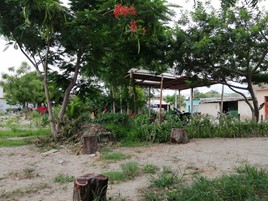
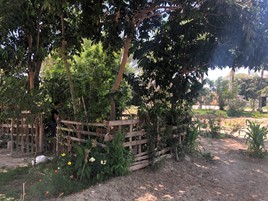
Survey Results
The results show that one of the greatest desires of the initiators is to improve the environment of the respective neighborhood by integrating green spaces to revitalize the environment. Incidentally the gardens support adaptation to climate change and the progressive mitigation of its effects in the future, since green areas contribute to better air quality and reduce the sensation of heat. This emphasizes the thermal comfort provided by the gardens, which offer an area of rest and socialization.
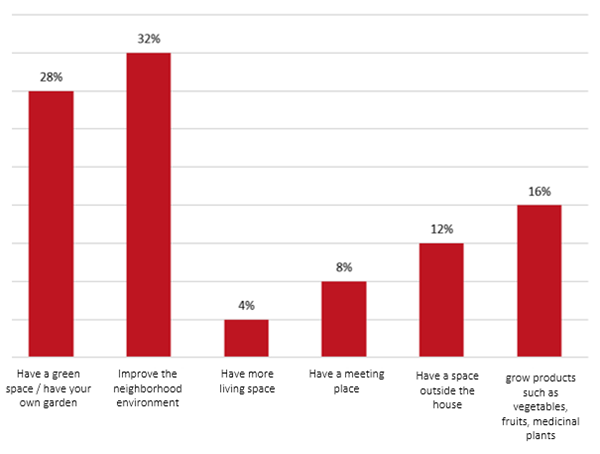
The interviewed neighbors consider the increased presence of local fauna, improved air quality and above all, a reduction in the thermal sensation as positive impacts of the orchard implementations. All in all, they were valued as generating a more pleasant environment and therefore as improving the quality and public life of the neighborhoods. In this sense, these informal spaces contribute to environmental regeneration in the city, which faces pollution through poor solid waste management.
However, residents also reported some negative factors for the neighborhood, especially regarding the increase in water consumption for irrigation of the vegetable gardens. This is especially relevant since Piura is a desert city with limited access to potable water, which is not accessible to the entire population. In addition, the increase in pests (squirrels, rats, mice), mosquitoes or flies, and allergies are negative impacts to a lesser extent.
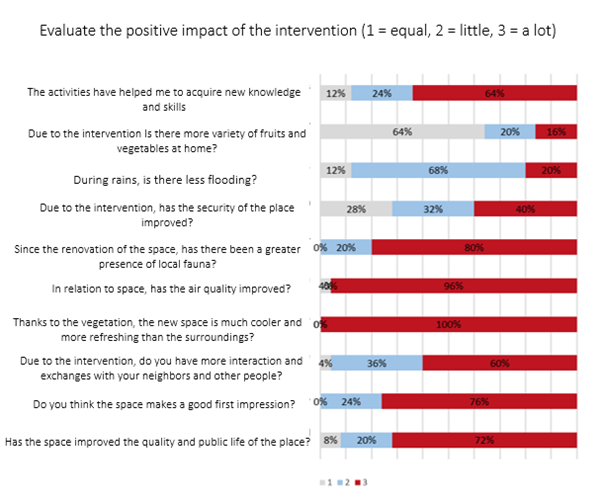
Promoting Urban Gardening in Piura
Regarding the reuse of rainwater, 96% of those surveyed have not installed systems that allow them to collect, store and reuse rainwater for irrigation. These data indicate that it is essential to raise awareness in the community about the reuse of water as an adaptation technique to the bioclimatic consequences of climate change. In addition, most people have not created enough composting sites, only 20% of the population knows about it.
To support the positive impacts and counteract the negative implications, the results of the study will be integrated into the MGI project activities through workshops and trainings on composting, water reuse and construction on the implementation of orchards with private and public institutions. For this purpose, the team is currently also coordinating with the Municipality of Piura to organize a “Festival of Urban Gardens” for 2022 to celebrate, promote and incentivize urban gardening initiatives.
